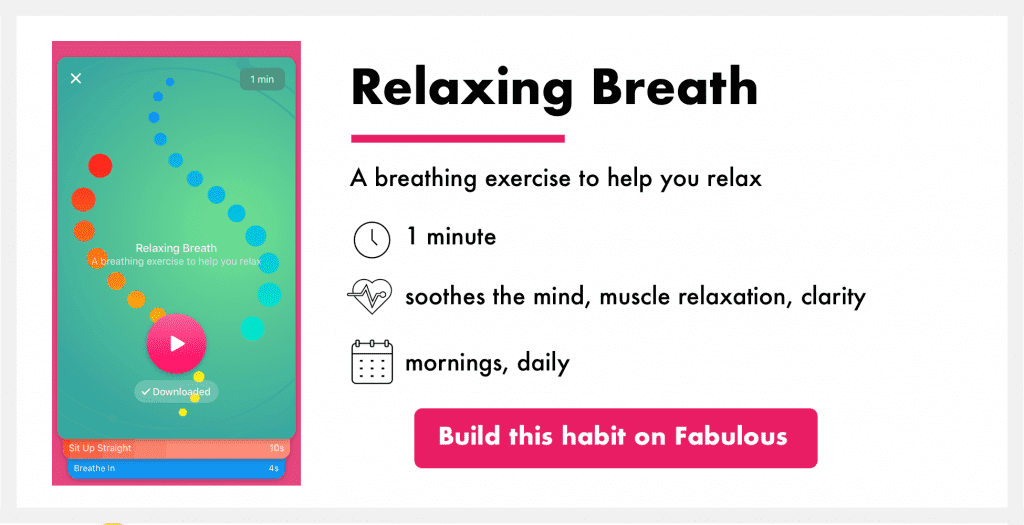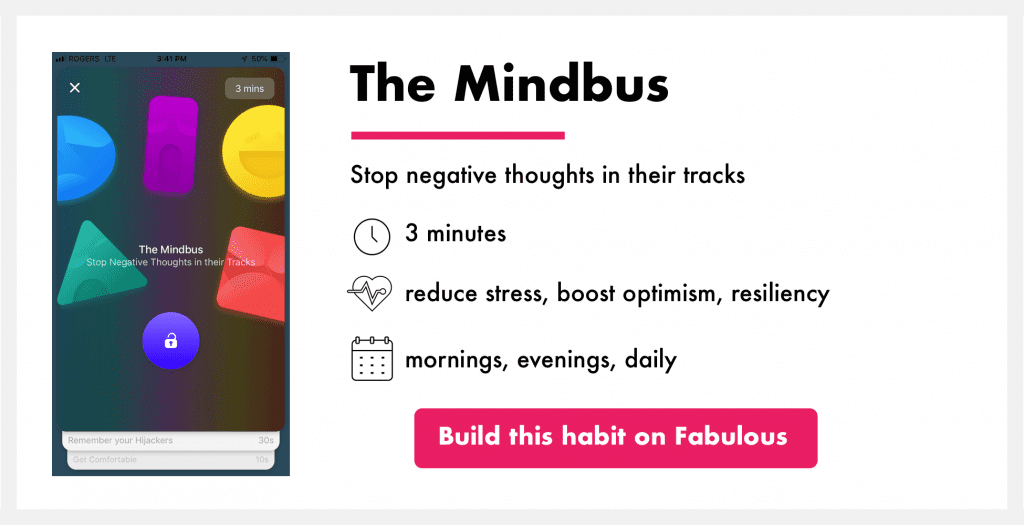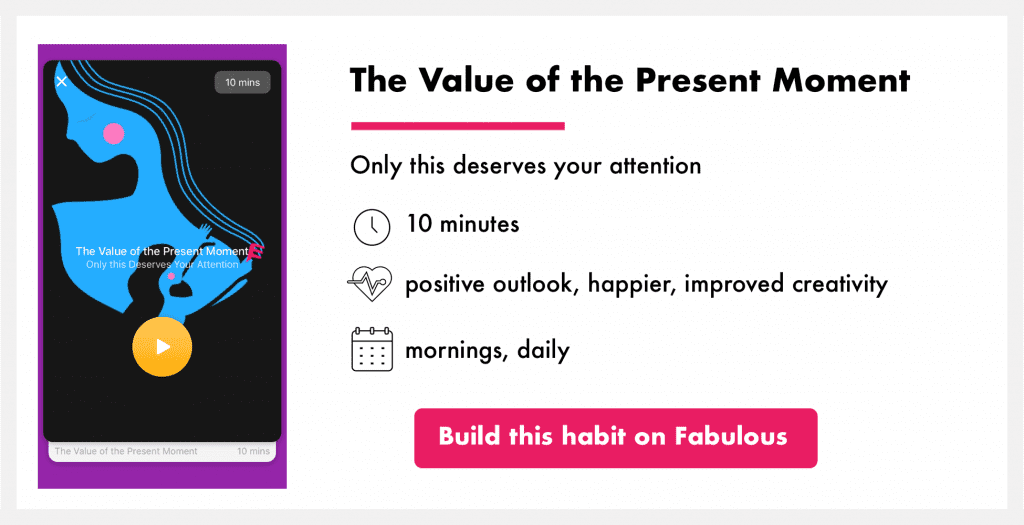Has anyone ever told you that you worry too much? Or, maybe you already know you’re a chronic worrywart but can’t seem to figure out how to stop worrying and start living. In fact, reading this might even be causing you some worry, so try out the Fabulous app to keep your mind clear while giving this a read.
If that’s true, take a deep breath. This blog post isn’t meant to call you out. We’re all susceptible to worry, and a little stress is actually good for us. But, if you find yourself worrying at the expense of handling your daily tasks, you’re not alone. Excessive worry is something we all deal with and have been for generations. Luckily, there is no shortage of advice on how to stop worrying, but none so popular as what’s found in Dale Carnegie’s famous bestseller How to Stop Worrying and Start Living.
What Worry Does to Us
We all know the immediate symptoms that come with worrying. Sweaty palms, shortness of breath, and an inability to focus are just the tip of the iceberg. Excessive, chronic worrying can take a toll on our health in multiple ways.
Physically, the effects of chronic worrying go far beyond what we feel in the moment. Stress increases our blood pressure while lowering the effectiveness of our immune system. We become more prone to stomach ulcers, headaches, and can even worsen skin conditions like acne or eczema.
But worrying also affects us emotionally. The body can only handle so much stress before fatigue and despair begin to set in, which only adds to the woes of the body. Constant stress can make us vulnerable to panic attacks or depression or exacerbate these conditions if we already have them.
Put simply, stress and worry aren’t evil in themselves. Much like physical pain, worry is another way our bodies can let us know when something is wrong. But, also like physical pain, too much of it can be damaging… or even deadly.
How to Stop Worrying…
Controlling our worries is easier said than done but it’s far from impossible. In his book, Carnegie outlines a number of useful techniques that can help us worry about less.
Focus on the present. According to Carnegie, most of the things we worry about involve things that are out of our control. We worry about our past regrets, about what other people think of us, and about the unknowns of the future. Carnegie declares outright that worrying about these things is foolish. We shouldn’t waste a moment of our precious time or energy focusing on things we can’t control.
Get the facts. Another reason we worry is because we don’t know what to expect or how a decision we make will pan out. When this happens, Carnegie suggests taking a no-nonsense approach to analyzing the situation with care. By learning everything we possibly can, and applying this knowledge to make pragmatic choices, we can eliminate our fear of the unknown. Carnegie also recommends incorporating a time limit for our decision-making, which he calls a stop-loss. The stop-loss exists so that we don’t over-analyze or waste any more time on a decision than we need.
Reframe criticism. Some of us can agonize over criticism, whether constructive or not, and suffer needlessly as a result. Instead of that, Carnegie writes that we should take a closer look at our critics. If they’re genuinely offering to help, we should accept that help gracefully and use it to better ourselves. If they’re only criticizing for the sake of it, they’re likely just envious of you. It’s easier to put down our superiors to make us feel better than to simply become better. In this light, rude criticism is really just a compliment in disguise!
…And Start Living
Worrying is a habit just like smoking cigarettes or exercising. And, just like any habit, we can eliminate bad ones with dedication, conscious choice, and lots of practice. If there’s one thing we know about habit-breaking, however, is that it’s far easier to replace a bad habit with a good one than simply eliminate a bad habit entirely.
Luckily, Carnegie’s book is full of habits to replace chronic worrying and serve us better.
Count your blessings, not your troubles. We naturally focus a lot on the negative things in our lives but there’s also an abundance of good that we tend to overlook. Focus on the good parts of your life and the bad parts don’t seem to matter as much. Gratitude is a powerful force; so much so that Fabulous has a whole challenge dedicated to practicing it.
Keep busy. It’s hard to worry when you’re busy with other things! Our brains don’t like to be idle, and the less busy we are, the more likely our minds will wander. Staying occupied with things we enjoy, like work or hobbies, can keep chronic worry at bay.
Be kind to others (but don’t expect others to be kind to you). Compassion and generosity are two of the Dalai Lama and Rev. Desmond Tutu’s Eight Pillars of Joy, and for good reason! We like to feel useful, and we all have the power to make a positive difference in someone else’s life, even if it seems small. However, if we expect this kind of generosity from others, we’re likely to be disappointed or feel cheated when they don’t reciprocate. It’s better to be kind just for the sake of being kind.
Relax. When you’re stressed, being told to relax is probably the last thing you want to hear! But you can’t pour from an empty cup, so to speak; you need to take care of yourself before you can worry about the rest of the world. Seek out activities that restore you when you’re feeling frazzled, be it meditation, a good book, or a coffee date with friends.
Worry is a natural part of life that can cause us serious damage if we don’t control it. We’ve talked time and time again about the dangers of too much stress. But we also have solutions! We have a number of exercises to help manage stress within the Make Me Fabulous portion of the Fabulous app. We particularly recommend our One-Minute Relaxing Breath exercise, the Value of the Present Moment meditation, or the “Get Inspired” exercise, The Mindbus. Let us know on social media if any of them work for you!






